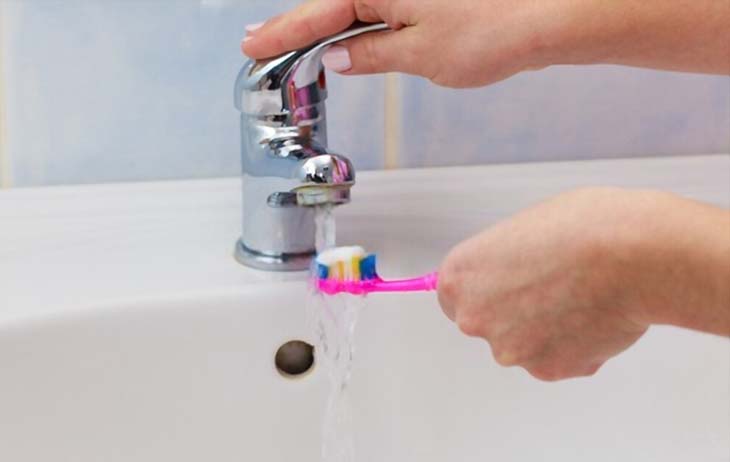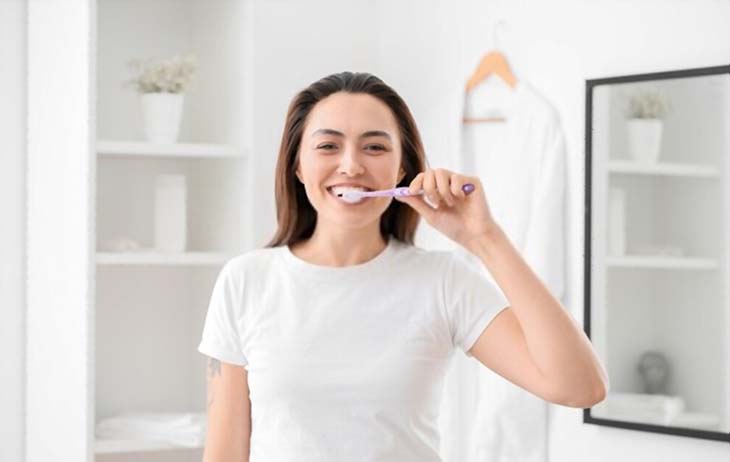Why is it not advisable to wet toothbrushes, whether manual or electric?

What could be more mechanical than brushing your teeth with toothpaste? To preserve oral health, teeth are brushed daily, several times a day, and this, since our childhood. The ritual does not change: we take the brush, we pass it a second under water, we spread a dab of toothpaste on it and we go on the attack. Everyone has their own technique for brushing: semi-circular, up and down or the opposite. But, who knows where this weird reflex to automatically wet the brush before using it comes from? Was it our parents who instilled it in us? A popular belief? Maybe we think that dry hair could hurt our gums?
Anyway, according to a group of dentists, it turns out that dry brushing would be much more effective against plaque and tartar. It would even be the best way to brush deeply and eliminate bacteria lurking in the mouth. And that’s not all: without the addition of water, you better fight against halitosis (the bad smell of breath). This is a theory that changes everything about the hygiene of the oral cavity. And to say that we have always believed that wetting the brush would be much more recommended to facilitate brushing.
Our teeth are very precious. The better they are cared for, the more they help us to wear a dazzling smile and gain confidence. It even prevents certain diseases: research suggests that brushing your teeth daily helps prevent arthritis. But, it has to start in early childhood. Even young, you have to learn how to brush your teeth properly, morning and evening, to avoid dental problems. Moreover, dentists recommend a very specific ritual: first a deep dry brushing and then a second pass with toothpaste to have this pleasant feeling of freshness. And even finish, possibly, with a fluoride mouthwash, for a very fresh breath. That said, they also insist that children should apply a dry toothbrush to further remove plaque, tartar and food residue stuck between the teeth. It also avoids the risk of swallowing toothpaste.

Want to have an “ultra bright” smile like in TV ads? No matter what type of toothbrush you use, Dr. Jiang, a professor at Harvard University (Harvard School of Dental Medicine) suggests using the following method twice a day. Don’t forget to also floss before or after brushing.
Here are the steps to remember:





